Martin McGuinness, the CIA, Mossad… and the extraordinary 50-year disappearance of a compromising film
Posted by Jim on March 27, 2024
An American academic who had worked for US intelligence was given unprecedented access by the IRA in 1972 – and brought along an Israeli Nazi-hunter whose son believes he may have been part of a conspiracy
Martin McGuinness, the CIA, Mossad… and the extraordinary 50-year disappearance of a compromising film
Sam McBride
Yesterday at 20:01
An astonishing story involving the CIA, Mossad, and the disappearance of a compromising film for half a century raises fresh questions about why Martin McGuinness evaded a long jail term.
The scarcely-believable story is pieced together in painstaking detail by veteran BBC investigative journalist Darragh MacIntyre in a film to be broadcast tonight on BBC Two.
After five years of work, MacIntyre has established a series of facts which do not in any way prove that McGuinness was a British agent — as some republicans believe — but do show that he was compromised.
It is unclear whether McGuinness knew the full story himself, but if he did, then he would have been vulnerable to pressure.
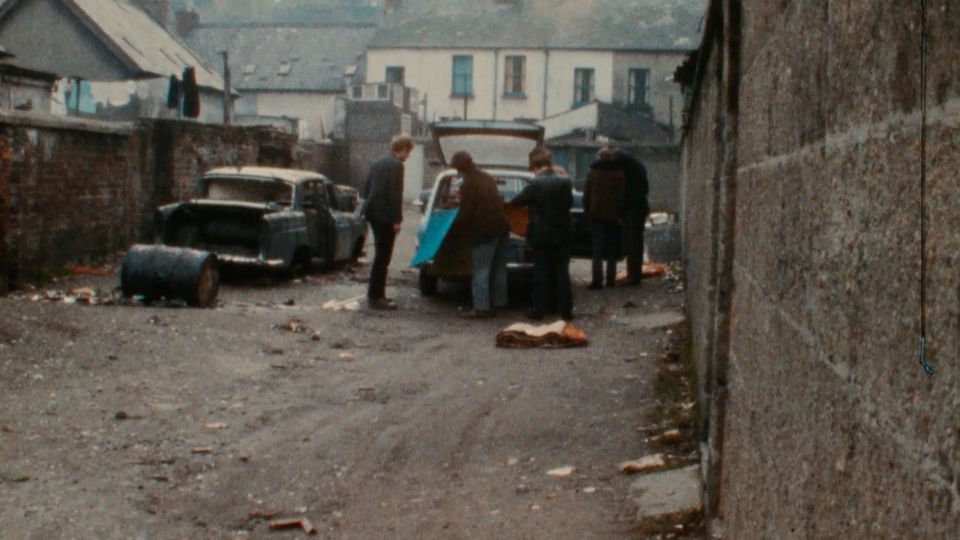
In 1972, an American academic, J Bowyer Bell, secured the IRA’s agreement to participate in The Secret Army, a fly-on-the-wall documentary of its secretive inner workings.
The footage he recorded showed IRA members making bombs, training in how to handle weapons, and exploding bombs in city centres. Unmasked IRA leaders talked openly on camera about the organisation.
As MacIntyre says: “The whole endeavour made very little sense when they knew that intelligence agencies were trying to spy on everything they were doing.”
The existence of the film emerged four years ago, but now far more detail is coming to light.
McGuinness was just 21 in 1972, but already the IRA leader in Derry.
In the film, he drove around Free Derry as a front-seat passenger did the talking.
He said the crew asked McGuinness if he would drive around the area and explain things for the film, to which McGuinness replied: “I’ll only do it if you go with me.”
Devine said: “I think Martin actually asked me to do the talking.”
He told MacIntyre the camera crew “were up our ass no matter where we went”.
They filmed McGuinness showing children guns, loading bullets into a revolver as the wide-eyed youngsters peered excitedly through the window of the car.
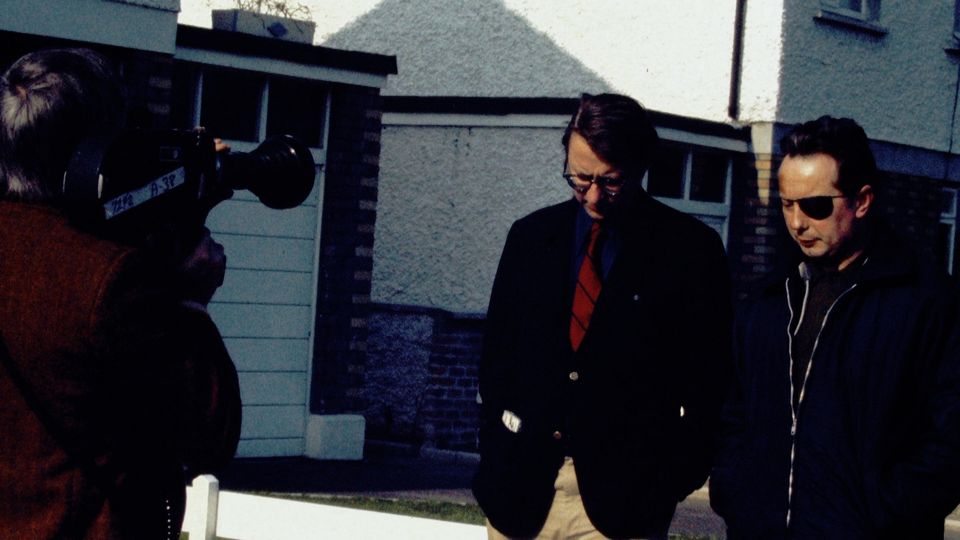
McGuinness is seen helping to prepare a car bomb which then explodes in the city centre. At least 26 people were injured in that attack, part of a two-day blitz which left eight people dead.
Des Long, a former army council member who was present when the Provisional IRA was founded in 1969, was filmed openly instructing IRA volunteers in how to use guns.
Long said Bowyer Bell told him he didn’t need a mask because “you’ll be shown from the chest down… that was a verbal promise from him, and it meant nothing”.
He said: “The whole thing was just… it should never have been made; I’m sorry to this day that I ever took part in it.”
Why would the IRA take such huge risks?
One possible motive is that it thought victory was at hand and became overconfident. Another possibility is the need for money. Long said the IRA got much of its funding — “hundreds of thousands” — from America.
In the view of Jacob Stern, who composed the soundtrack, “the purpose of the film was to show the legitimate cause of the IRA”.
Stern said the IRA wanted “more favourable opinion in America… and maybe they could raise more money that way”.
Now 88 and living on the edge of an Arizonan desert, he said firmly: “I was in sympathy with the IRA.”
From the moment Bowyer Bell collected Stern at Dublin Airport, he was using counter-surveillance techniques, telling the composer they were being followed by intelligence agencies, but shaking them off by walking through a shop to another car.
The IRA insisted on controlling the film’s content, telling the filmmakers that if they didn’t comply, they’d be shot.
MacIntyre said he had independently confirmed that Bowyer Bell ceded editorial control to the IRA.
The film glamorised the violence in a way which now seems simplistic.
Geraldine Hughes, a 17-year-old, described it as “a great honour” to be in an IRA active service unit in Andersonstown, and referred to her activities as something which gave her self-confidence: “I found that I am more sure of myself now than I was beforehand.”
However, the most extraordinary element of the story is what happened after the filming was complete.
Bowyer Bell took the film reels to London for development.
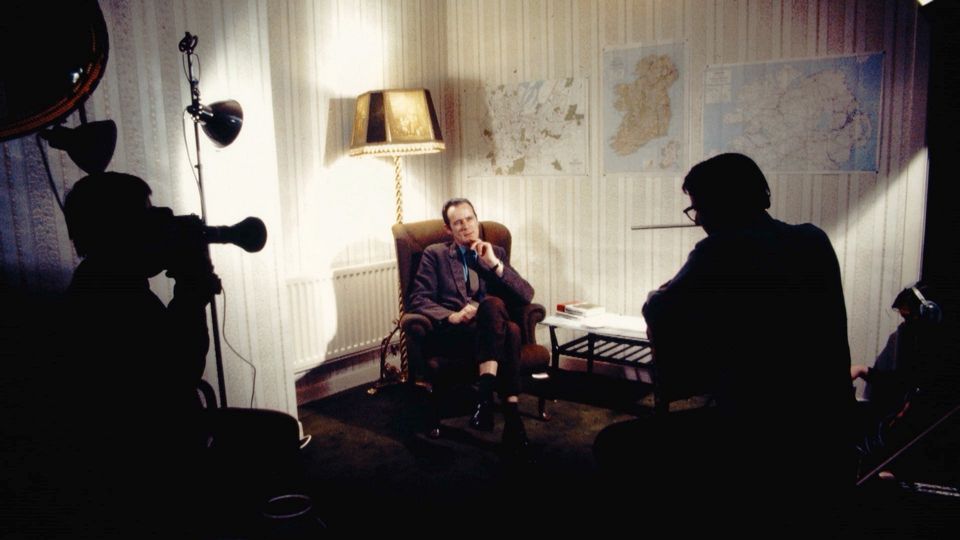
The film’s executive producer, Leon Gildin, said that Bowyer Bell and the film’s director later told him British intelligence viewed the material.
He didn’t blame them for that, assuming they had “no alternative” but to allow the intelligence services to see the reels.
He said: “Had they had developed it in Dublin, perhaps no one would have seen it. By virtue of it being developed in London, that’s where British intelligence got their hooks into it.”
Bowyer Bell’s CV from 1991, tracked down by MacIntyre in a Harvard archive, shows that from 1974 he did work for the CIA, the US Department of Justice, Department of Defense, and State Department.
He had high-level security clearances, cleared to Top Secret for the CIA and Department of Defense.
A long-standing friend, Roberto Mitrotti, said bluntly: “Part of him was pretty s**tty.”
When asked if he was working for the CIA, he said: “I think he was. He was too smart to be a servant of an American agency. So he might have taken money from them at some point to provide certain services, provided the services were in the abstract.
“But he would never, knowing him, I don’t think he would betray; he would sell, people, human beings in the service of the CIA.”
He said: “He was really talking like a CIA agent… he lived it, and he was good at it… he was a character in his own movie.”
Tim Pat Coogan, author of a history of the IRA, said he’d no doubt Bowyer Bell was a CIA agent.
He said: “You wouldn’t know what Bowyer Bell told them; did they think there was going to be a Hollywood bonanza, that money would flow into the coffers?”
However, when Stern was asked if he believed he was inadvertently working with a CIA operative, he said: “Absolutely not.”
Bowyer Bell’s daughter, Becky Waring, also denied he was a spy, but then said: “He probably wouldn’t have told me if he was.”
“I remember us all being very excited — daddy’s going to do a movie. Then we were all waiting for it to be on TV, and it never was; it was a big disappointment.”
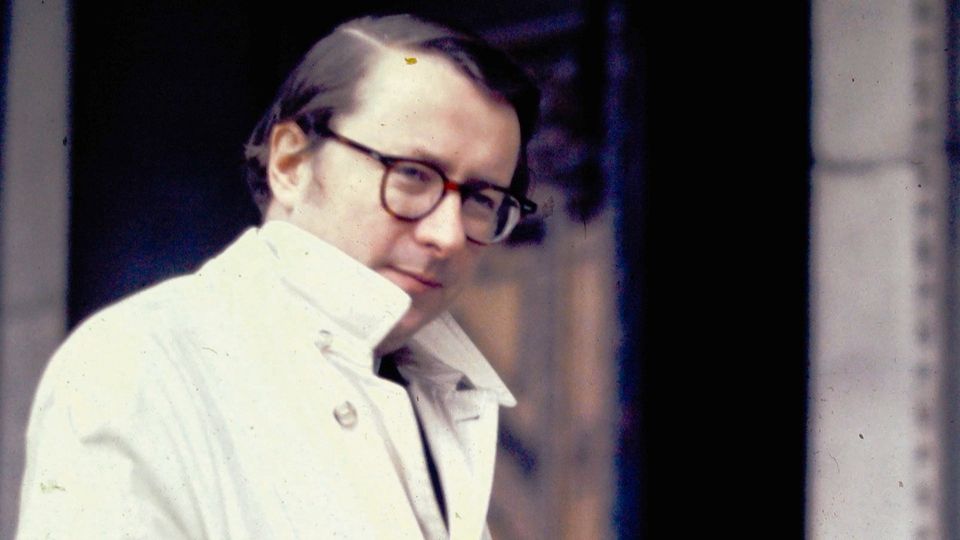
Bowyer Bell’s choice of director for the film adds to the intrigue. He selected Zwy Aldouby, a man who appears to have had no experience of filmmaking. The Israeli writer and journalist had been a Nazi-hunter after the Second World War.
The CIA had been gathering intelligence on him and according to declassified CIA documents he was then working under the guidance of Israeli intelligence.
Aldouby’s son, Illan, said he didn’t really know who his father was.
When asked if it was possible that his father was part of a conspiracy by intelligence agencies to infiltrate the IRA, he said: “I would say there would be a strong possibility. There is a connection of the IRA and Israel, and that connection is Gaddafi… my father, if he worked with or collaborated or worked with the Mossad or Israeli intelligence, it would be a clear fit.”
Richard Kerr, a former deputy director of the CIA who was monitoring Libya from the 1970s, said it was “almost a certainty” that Aldouby was spying on the IRA and feeding that back to Israel.
The film ultimately did get to America where it was Gilden’s job to sell it.
Viacom “loved it”, he said, and “immediately offered me a contract for worldwide rights”.
But having done so, it “never sold a copy”.
Why a company would buy the global rights to a film — preventing anyone else from broadcasting it — but then not sell it adds to the questions around the entire enterprise.
Mitrotti said that Bowyer Bell later told that the British Government scuppered the film by putting pressure on the US Government to keep it hidden.
After looking at Bowyer Bell’s CV, Tony Devine said: “Reading this here… we were idiots.”
For years, there have been claims that McGuinness may have been an informer, but without evidence behind them.
Last year, several former IRA members who served with the Sinn Fein leader in Derry raised questions about key decisions he made.
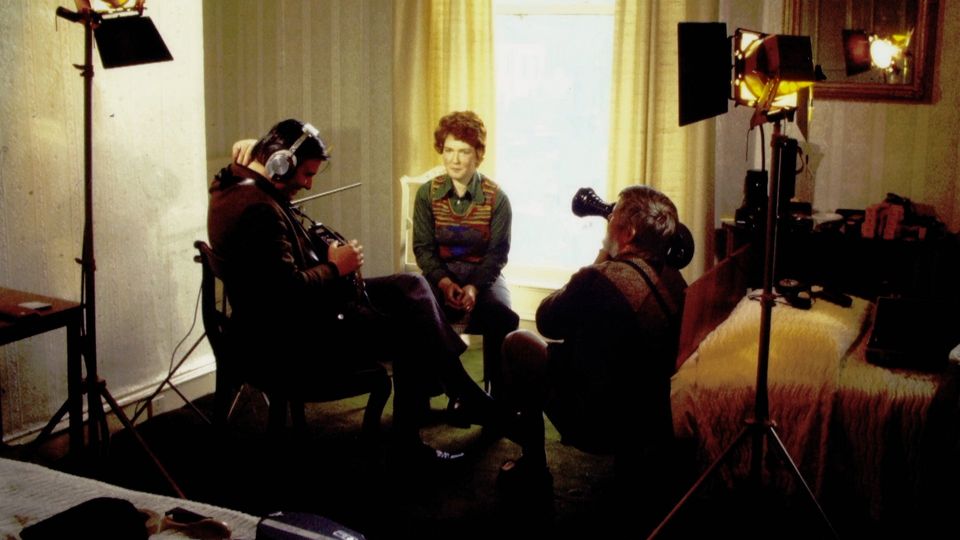
In a book by former IRA man Richard O’Rawe, an ex-IRA commander for north Derry, north Antrim and south Down said he openly accused McGuinness at an internal meeting: “I just came out in front of everybody and said to McGuinness, ‘You’re nothing but a f***ing tout’ and I walked out of the house.”
Five years ago, Willie Carlin, a former MI5 agent within the IRA in Derry who was close to McGuinness, said that he’d seen him at an MI5 safe house in Limavady.
He also said that it was MI5 which acted to protect the senior Sinn Fein figure when, in 2001, Carlin’s former handler came out of retirement in Italy to ask him to give evidence to the Saville Inquiry to dispute the evidence of another agent, codenamed Infliction, that Mr McGuinness had fired the first shots on Bloody Sunday.
However, Carlin said that he did not believe that McGuinness was himself an agent. Rather, he said: “I think the British became aware sooner than the public imagined that here was a man they could do business with.”
The Secret Army is available now on BBC iPlayer and will be shown at 9pm tonight on BBC Two